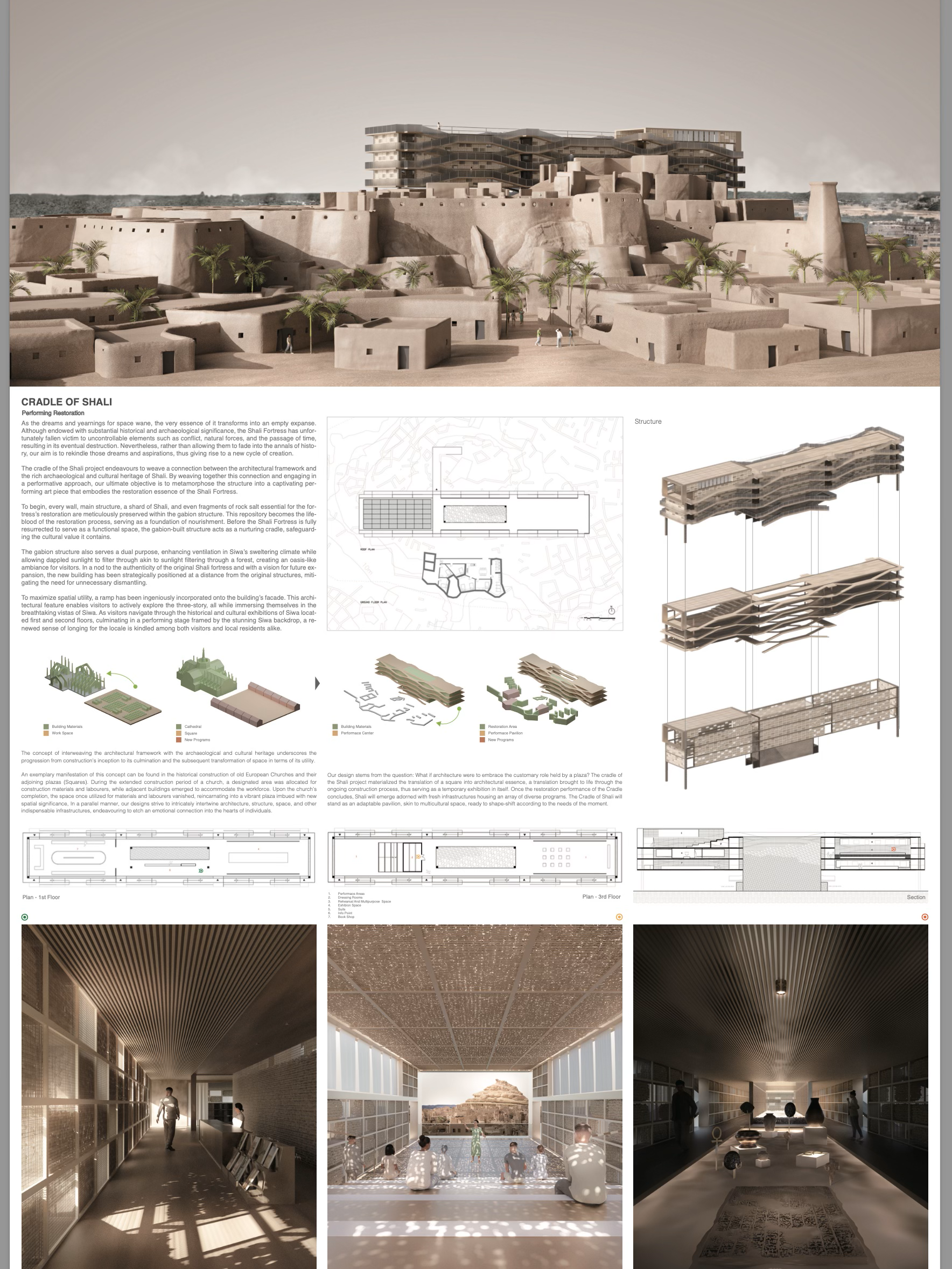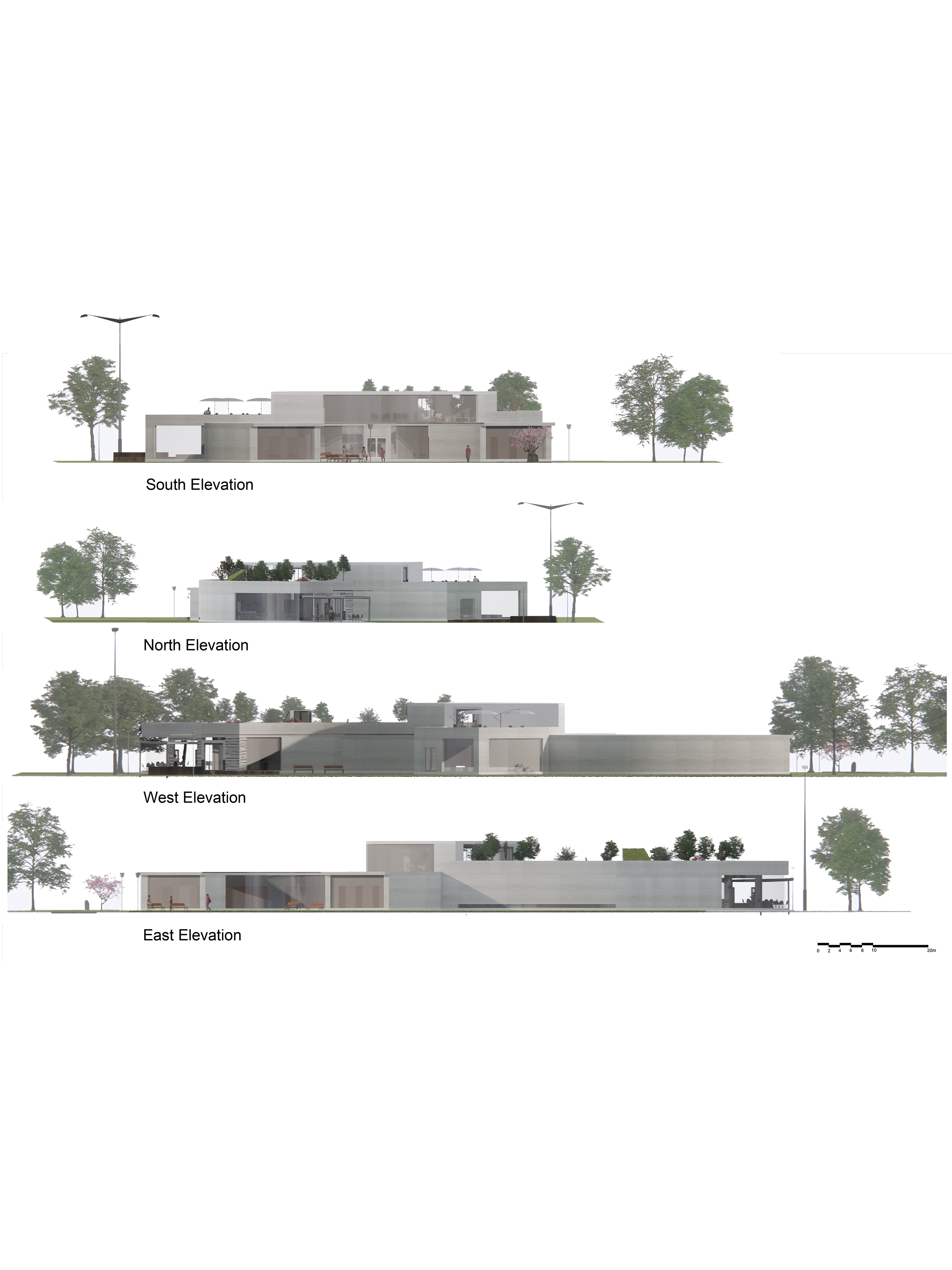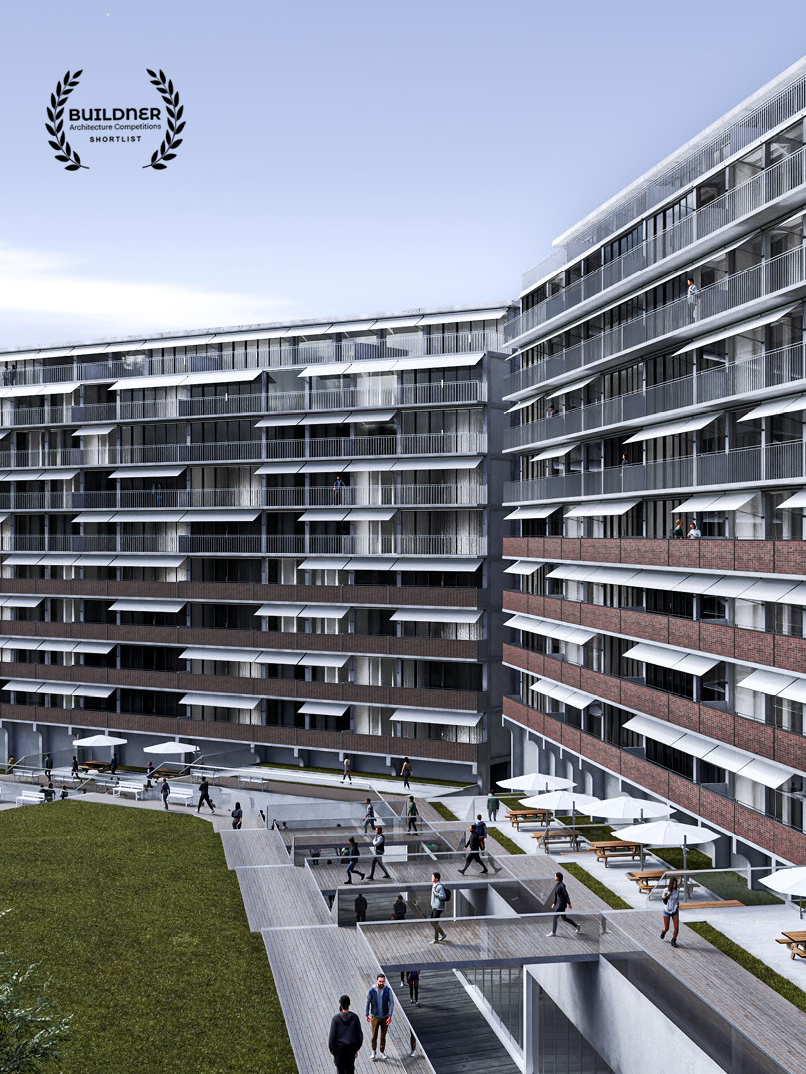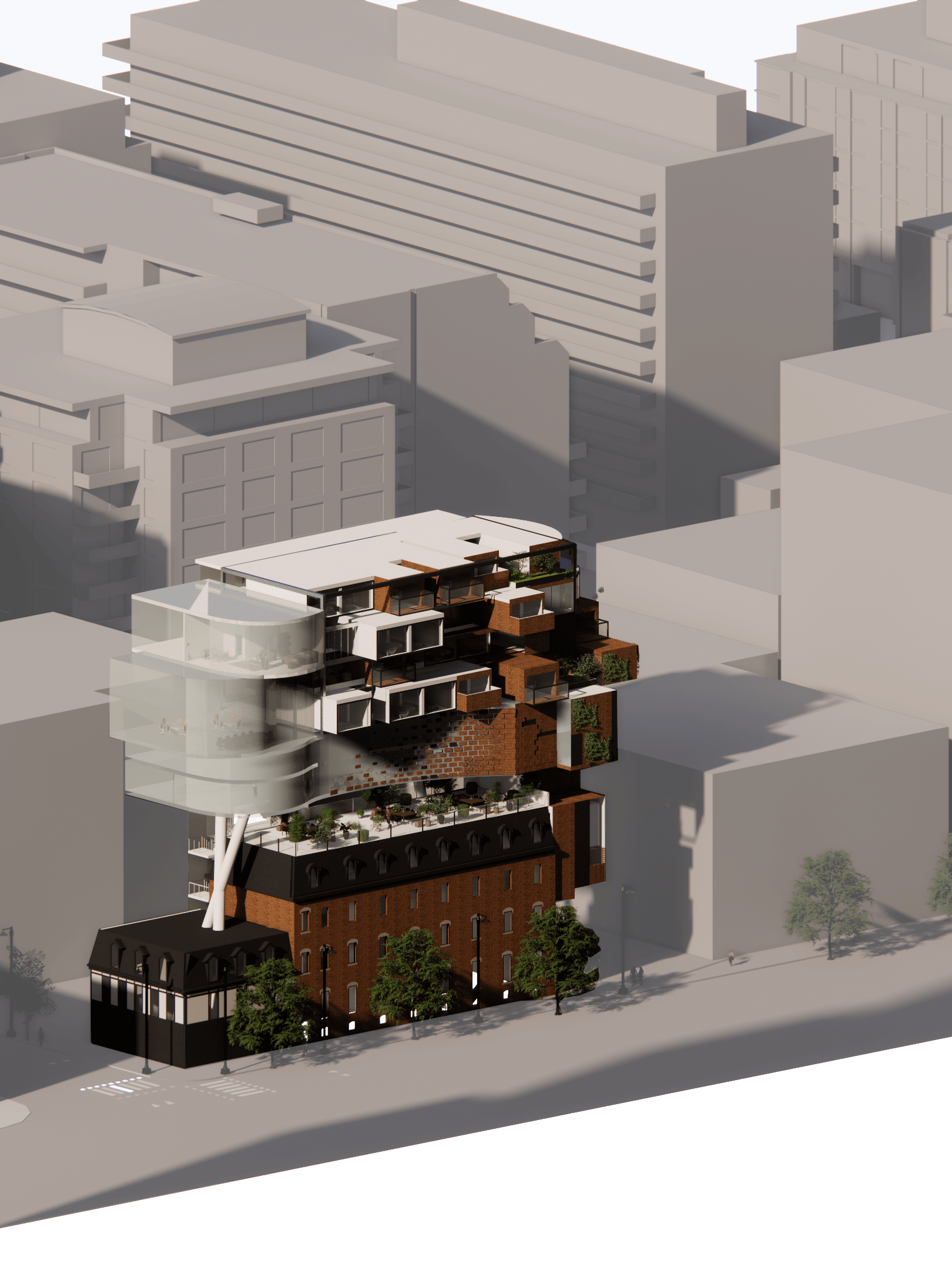Redefining Community and Intergenerational Bonds in Urban Toronto
As human lifespans extend globally, the challenge of aging has become increasingly apparent. Nowhere is this more evident than in Toronto, Canada, where rapid social changes among diverse cultural groups have intensified intergenerational conflicts and deepened the isolation of older adults. Contemporary societal norms often lead to the separation of different age groups into distinct spaces, driven primarily by functional considerations. This trend extends beyond residential facilities, permeating cultural, educational, and community spaces, inadvertently exacerbating tensions between generations.
In response to this pressing issue, this architecture practice is pioneering a solution: transforming the historic Toronto Old Coach Bus Terminal into a multi-generational co-living residence. This architectural initiative seeks to revitalize the diminishing importance of intergenerational exchange. Its core objective is to elevate the quality of living environment for the elderly by addressing the pressing housing and educational needs of the younger generation, who find themselves at opposite ends of the life cycle.









